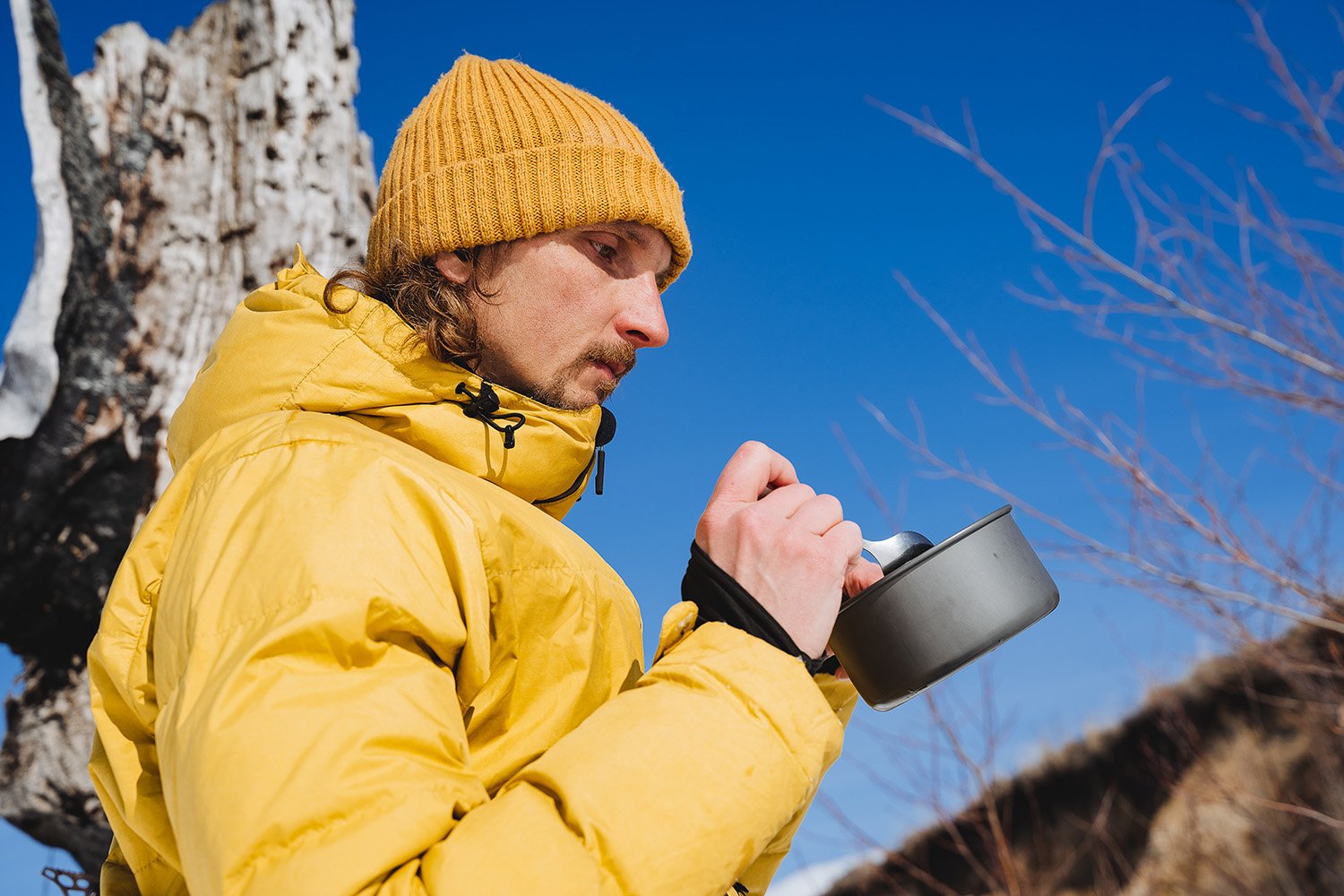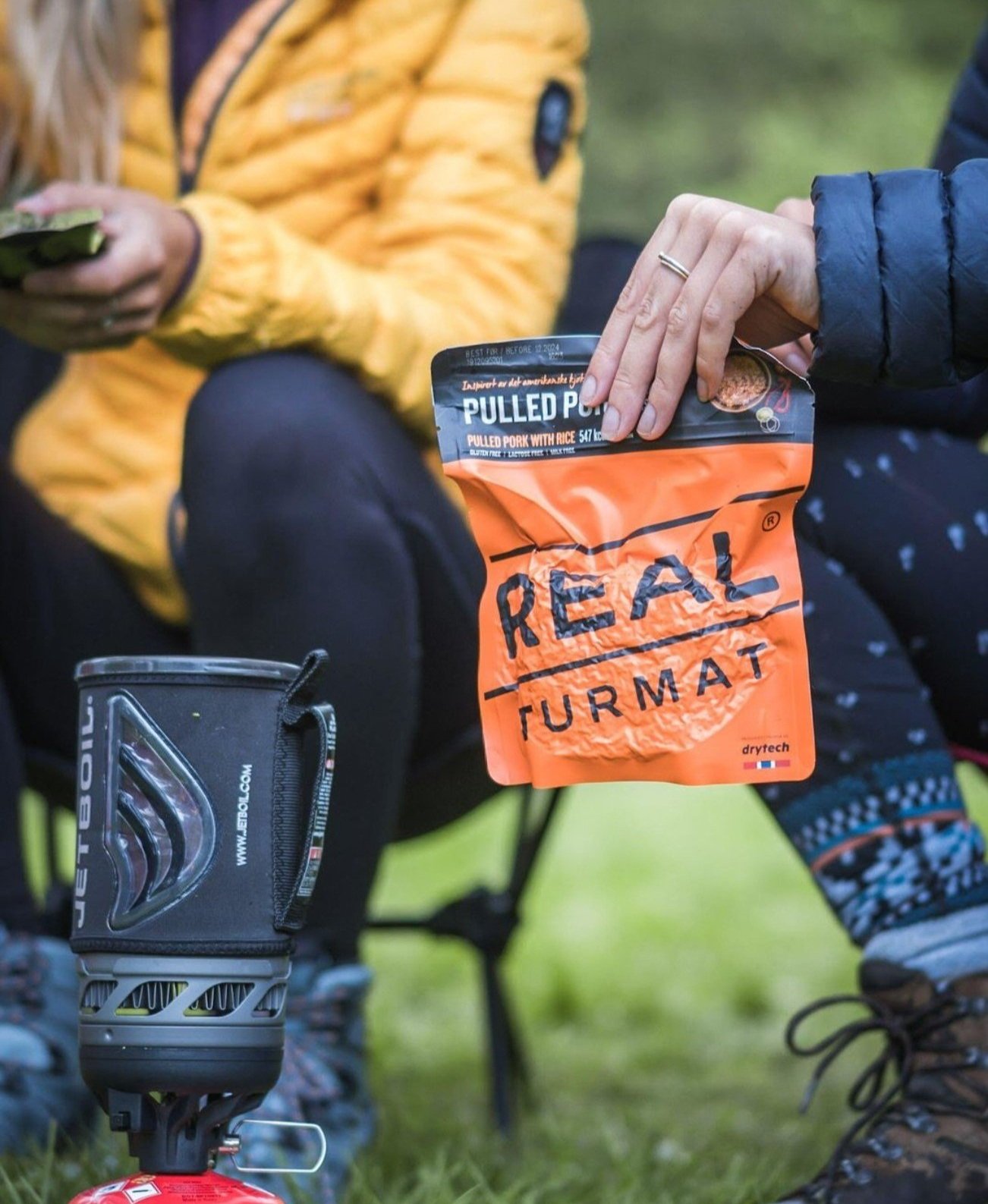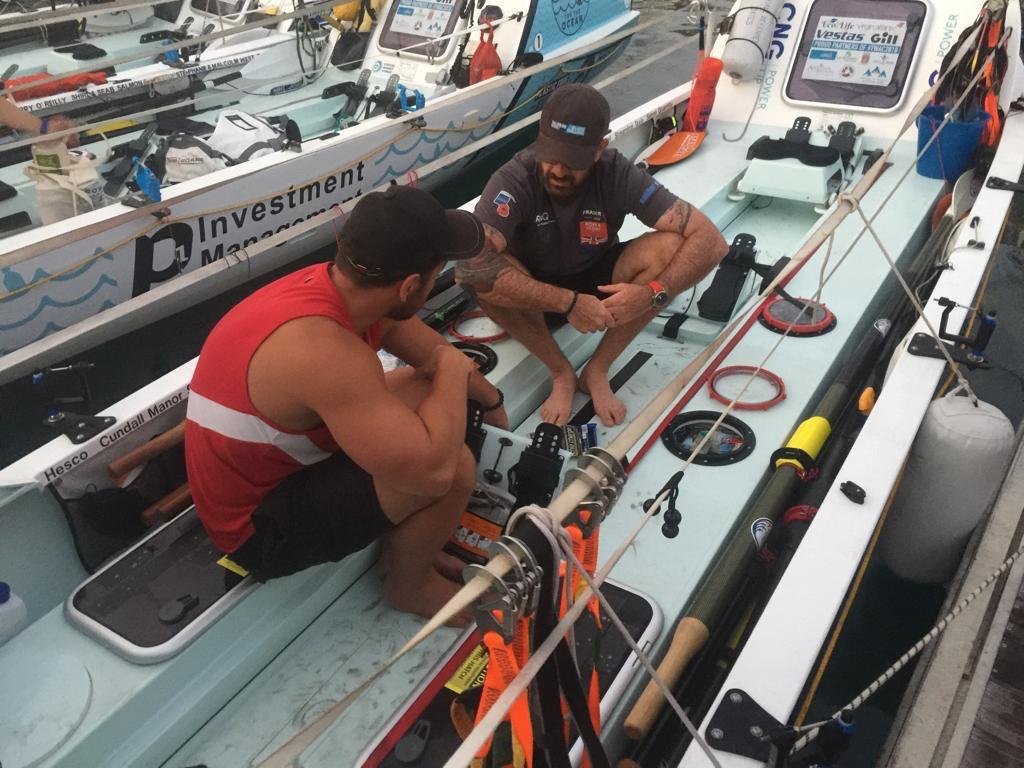Fuelling adventures with food and nutrition fit for any expedition
“Scran is the currency of morale” - G, 22 SPECIAL AIR SERVICE Regiment
You can't argue with him (nor would you want to). While you will undoubtedly experience some of life's highest highs on expedition, much of your time on the high seas, windblown mountains, Arctic tundra, humid jungles or scorching deserts will just be hard graft.
You will be digging out blind to get those precious miles in, day in… day out… fighting against the conditions, moving heavy loads and overcoming relentless adversity. On these days, the food you eat will often be the high point of your day and can serve as a massive morale boost.
Aside from the obvious fact that you need to fuel your exertions on whatever trail you have chosen to take on, getting your food right on expedition is ESSENTIAL!
My top tips for getting your expedition food right
1. Try before you buy (in bulk)
Just because you like your mum's spaghetti bolognese doesn't mean you'll like a freeze-dried version. These expedition meals are made for calories, stability, and long shelf life - not for authentic Italian flavour.
On our Expedition Nutrition Workshop we will discuss your likes, dislikes, allergies and calculate your caloric requirement (more on this later).
My advice is to do this early, and use it to inform your selection of manufactures and flavours that tick all your boxes and to give them a taste test, primarily just to narrow down on the ones you find palatable and cross off the ones you think are an immediate no-no on first mouthful.
2. Variety is key
This is the food you will be eating for days, weeks, or even months. It isn't a one-day event or even a long weekend where you can just make do and get by with what you've got or lean into your onboard glycogen and fat reserves. In order to avoid menu fatigue, as is often experienced by the military on extended tours or exercises eating nothing but 24-hour ration packs, you need to really focus on variety.
Plan for your tastes to change as you get bored of certain meals or flavours over time; even a change in texture can be welcome. At sea, we often see even the most sweet-toothed people start to crave salty snacks to help balance hydration. Our advice is to get a mix of makes and manufacturers, as they all use slightly different flavourings and processes, and then get as many different flavours as possible rather than bulk buying just 3 or 4 that you like on day one.
Supplement main meals with snacks too. The ratio of meals to snacks will depend on storage and space available and the reheating or cooking methods you have, but aim to get at least some snacks in the mix. Over the 5+ years of ocean rowing safety cover we have supplied, it is main meals that make it all the way across the Atlantic or Pacific Ocean; snacks and treats rarely make it all the way as they are easier to eat, more convenient, tasty, and often calorie-dense.
This is where our partners at Base Camp Food are streets ahead; there is not another place with as much choice of wet and dry meals and expedition-appropriate snacks available under one roof.
3. Calorie dense vs nutritionally dense
Now (the pre-expedition training phase) is the time to treat yourself like an Olympic athlete. In preparation for a massive challenge, you should definitely be hitting your macro and micro nutrient requirements and fuelling your training programme and recovery. The aim should be to get to the start of your expedition as strong, fit for purpose, and healthy as possible; you want your immune system to be optimal when you set off.
Once you're out there though, it becomes a game of attrition. Your immune system will take a knock and start to degrade, you will not be able to recover from your physical exertions every day, you won't be getting sufficient sleep, and unless you have planned well and maintain perfect eating discipline, you will likely be in a calorie deficit, compounded by things like seasickness, altitude sickness, runner's belly, or nerves.
Once you embark on the journey, you just need fuel. Yes, it should be as nutritionally sound as possible, but not at the detriment of actually being able to eat it, all of it… day in, day out! Speaking to the awesome Ross Edgley (ultra-endurance athlete and world record holder for swimming around Great Britain) before our own Atlantic row in 2018, he explained the importance of just getting food down after every shift no matter what, and if that means cakes, pizza, and fish and chips, so be it. You need to fuel your activity and ideally complete the challenge as swiftly and safely as possible.
Once you have achieved whatever feat it is you have set out on, then it should be back to the nutritionally considered meals to help your recovery.
4. Consider logistics and environment
After you have figured out how much food you need and for how many days, you need to start thinking about moving all that food, getting it to the start line, and then moving it to the finish while you tuck into it.
How much space do you have available?
What weight restrictions are in place?
What are you going to do with your rubbish and waste?
Have a think about what conditions are going to be like where you're headed. For example, if it's going to be consistently below freezing, you don't really want to be carrying ‘wet food’ that can freeze solid, expand and compromise containers or pouches, or take an age to defrost. You might look at more freeze-dried or dehydrated foods, which also tend to be cheaper, lighter, and higher in calories, but often don't taste as good as the wet meals can.
On a more administrative level, can you even ship a large quantity of food to your destination? Meat especially can cause issues and delays at border control if it is not properly handled and planned for.
60 days worth meals and snacks for 4 men
Talking expedition nutrition strategy with Ross Edgely
Packing up the boat with food - Will it all fit???
5. Plan for your waste
We all have a duty to care for this planet and the environment. The reports of litter and rubbish seen at sea, especially in the Pacific, are truly heart-breaking, with people seeing more plastic bottles and shopping bags than fish or marine life, even more than 1,000 nautical miles from land.
Wherever you are headed, for however long, you need to have a plan for dealing with your waste. The food packaging will likely be your biggest source of rubbish generated. Most expedition food manufacturers provide food in pouches you can make the food in and eat it out of, but unless you happen to have great washing-up facilities on your expedition, that means quite a lot of dirty packets with old food rotting and decomposing. This can obviously smell bad but also attract unwanted pests or even predators and become a breeding ground for bacteria which could cause adventure-ending illness.
Perhaps think about carrying a bowl you can make the food in to keep trash as clean, lightweight, packable and transportable as possible. This will give yourself a much easier time when you have finished your epic adventure when it comes to packing up and dealing with your rubbish responsibly.
Victory Adventure Nutrition Workshop
Sign up to the Victory Adventures Expedition Nutrition Workshop and, together, we will calculate how many calories per day you need for your expedition, how many days you need to plan for, and look at contingency plans and emergency measures with consideration for all the above.
We will build your food order for you and submit it to our awesome partners at Base Camp Food (more on these legends in a future blog), giving you access to our exclusive discounted rates and get it delivered to your door.
For even bigger discounts with Base Camp Food and access to more exclusive deals with our other partners and affiliates, sign up for the Expedition Blueprint Workshop as well.
Summary
Proper nutrition is a critical factor in the success of any expedition. From selecting palatable and varied meals to covering your calorific expenditure and managing waste, careful planning of your food strategy can make the difference between an enjoyable adventure and a miserable slog. Remember, "Scran is the currency of morale", fuel your body right, and you'll be better equipped to tackle whatever challenges your journey throws at you.
Ready to optimise your adventure or expedition nutrition plan?
Sign up for our Victory Adventures Expedition Nutrition Workshop to get personalised calorie calculations, meal planning assistance, and exclusive discounts with our partners.
For even more comprehensive expedition preparation, consider our Expedition Blueprint Workshop, which covers nutrition along with other crucial aspects of adventure planning.
Start sampling expedition-friendly meals and snacks to find your favourites before committing to bulk purchases.
Begin thinking about how you'll manage food logistics and waste during your adventure.
Don't let poor nutrition derail your expedition. Invest in proper planning now to fuel you and your adventure's success. Get in touch if you want to find out more.









